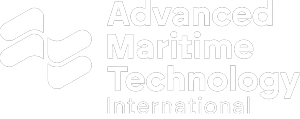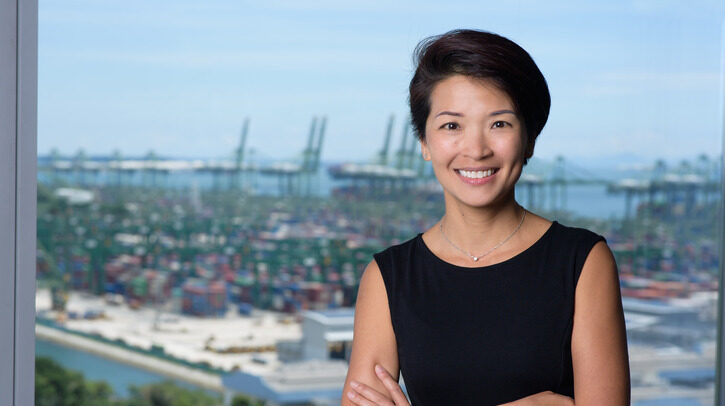In collaboration with Lloyd’s Register (LR) and Arup, the Global Centre for Maritime Decarbonisation (GCMD) has released a report that has identified low port readiness as a major hurdle bottlenecking the adoption of onboard carbon capture and storage (OCCS) systems as a practicable decarbonization solution.
Although the technologies required for offloading onboard captured CO2 exist at high levels of maturity, the report found that safe operationalization of captured CO2 transfer by trained personnel has not been demonstrated.
The report, titled Concept study to offload onboard captured CO₂, found that while a limited number of ports possess the infrastructure to offload liquefied CO2 (LCO2), they are primarily designed to handle food-grade CO2. The higher purity standards that accompany this use limit the interoperability of facilities to handle onboard captured CO2.
By considering the needs of the entire value chain, this study evaluated four concept configurations of offloading infrastructure from a possible 162 scenarios, identified the operational standards and safety guidelines for handling LCO2, developed models for the quantification of costs for scaled-up infrastructure, articulated manpower competency frameworks for offloading operations, and analyzed the potential regulatory scenarios needed to address the current uncertainties surrounding LCO2 offloading from OCCS.
The study examined over 10 planned LCO2-related infrastructure projects worldwide. Located near, or with transportation links from, CO2-emitting industrial clusters, these projects are likely to handle much larger volumes of captured CO2 than those from OCCS systems – port infrastructure needed for offloading, storing and transporting onboard captured CO2 will likely need to be integrated with these projects for economies of scale. However, as many such projects remain in the concept phase and have not reached final investment decision (FID), ports have not proceeded with offloading infrastructure investments. The research highlighted this chicken-and-egg dilemma and the overall infancy of the carbon value chain.
Furthermore, the researchers pointed out that introducing LCO2 offloading into complex port operations will likely affect port efficiency and operational performance. The need for additional buffer zones to address the safety concerns of LCO2 handling and storage was found to also add to existing space constraints at ports and terminals.
About the study: addressing the gap in the carbon capture value chain
This nine-month study aimed to address a gap in the onboard carbon capture value chain. OCCS has recently gained traction as a potential interim solution to help international shipping meet IMO’s emissions reduction targets, with potential deliberations at future Marine Environment Protection Committee (MEPC) sessions. While achieving emissions reductions through OCCS hinges on successfully integrating a shipboard-compatible system within space constraints, equally important is addressing the fate of captured CO2 by establishing its use or sequestration pathways.
This study complements GCMD’s Project Realising Maritime Carbon Capture to demonstrate the Ability to Lower Emissions (REMARCCABLE) by addressing the feasibility of OCCS as a practicable, end-to-end solution at scale. For OCCS systems to be operationally feasible, the industry needs to develop a collaborative ecosystem to enable the value chain for managing captured CO2.
Concepts for safe offloading of LCO2
One of the report’s key considerations was to examine how LCO2 can be offloaded safely to the appropriate infrastructure. The study determined that captured CO2 in its liquefied form is likely the most efficient and cost-effective option for onboard storage and transportation. Based on this, the study shortlisted four concepts covering key offloading modalities, such as ship-to-ship and ship-to-shore, serving as building blocks that can be combined to cover a wider range of offloading concepts.
In ranking the operability of these concepts, the study identified ship-to-ship and ship-to-shore transfers using an intermediate LCO2 receiving vessel as the most promising modalities for offloading at scale, with captured CO2 eventually sequestered or used as feedstock for manufacturing synthetic fuels.
Ship-to-terminal transfer of captured CO2 stored in ISO tank containers was identified to be more compatible at smaller scales and for end uses that require higher grades of CO2. This modality of transfer is also most compatible with existing port infrastructure and therefore easier to pilot today.
Safety considerations for handling LCO2
As handling LCO2 on board presents a unique set of safety challenges not commonly encountered when handling fuels in shipping, the study offered an in-depth examination of hazards. These included asphyxiation and toxicity if a leak or a loss of containment takes place.
Unique to CO2 is the evaluation of its storage at conditions near its triple point, where the gaseous, liquid and solid phases of CO2 co-exist. Storage at or near the triple point is sensitive to impurities, and minor changes in temperature and pressure can lead to a phase change from liquid to solid CO2, leading to hazardous situations such as blockage in pipes and build-up of pressure.
To address these hazards, a series of safety studies, including a hazard identification (HAZID) of offloading, simultaneous operations (SIMOPS) and a coarse quantitative risk analysis (QRA), were conducted and mitigation measures and emergency response procedures articulated for handling LCO2.
Prof. Lynn Loo, CEO of GCMD, said, “While pilots have successfully demonstrated numerous capture technologies on board ships, it is still uncertain how captured carbon on merchant ships can be safely offloaded, and what the rest of the value chain looks like. This study sheds light on these challenges and highlights recommendations to holistically address these concerns for parties interested in advancing OCCS/ LCO2 offloading concepts.”
Nick Brown, CEO of LR, said, “The maritime industry requires a comprehensive understanding of the safety and operational challenges posed by all emission-reduction technologies. This study, which focused on port readiness and considerations for the safe handling and offloading of LCO2, addresses some of the gaps that exist in the carbon capture value chain and will support industry stakeholders in making informed investment decisions around carbon capture solutions and the creation of regulatory and operational guidelines.”
Robert Cooke, design lead of Arup, said, “As a result of the study, it has been promising to see how transferable existing CO2 industrial knowledge is to an offloading application. Arup brought together energy and maritime capabilities to outline the concepts for onboard captured CO2 offloading and develop how this new process can practically and safely integrate into busy port environments. We look forward to seeing the technologies and implementation develop into effective marine decarbonization solutions.”
To find out more about how port readiness is affecting the future of marine decarbonization onboard technologies, click here to read EHM’s exclusive feature, ‘How will the provision of hydrogen on land shape the future of marine decarbonization solutions and technologies on board?’



